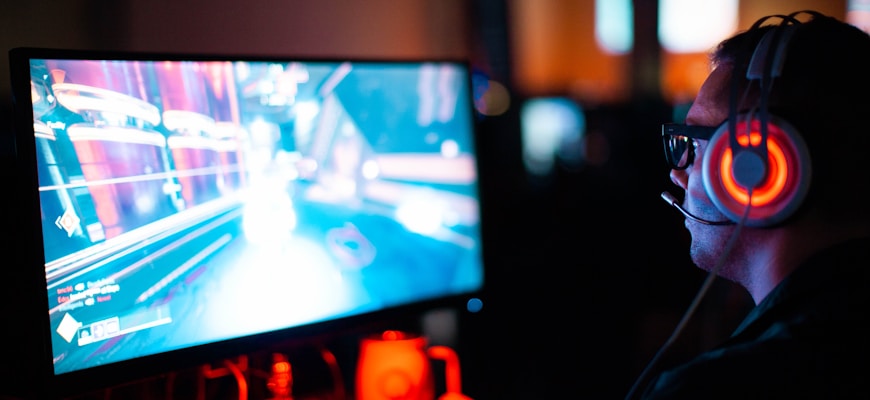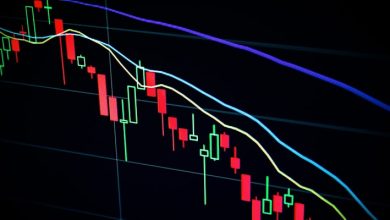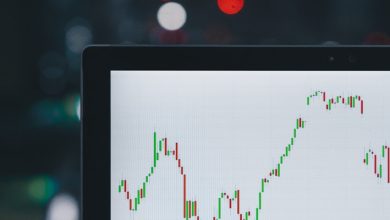The Rise of Gaming Tokens: Market Performance and Potential

- Understanding the concept of gaming tokens
- Exploring the market trends of gaming tokens
- The impact of blockchain technology on gaming tokens
- Investing in gaming tokens: risks and rewards
- The future of gaming tokens in the digital economy
- Regulatory challenges facing the gaming token market
Understanding the concept of gaming tokens
Gaming tokens are digital assets that represent a unit of value within a specific game or gaming platform. These tokens can be used to purchase in-game items, unlock features, or participate in virtual economies. Understanding the concept of gaming tokens is essential for players and investors alike, as they play a crucial role in the gaming ecosystem.
Gaming tokens are typically built on blockchain technology, which ensures transparency, security, and decentralization. By leveraging blockchain technology, gaming tokens can be easily traded, transferred, and tracked across different platforms. This creates a seamless experience for users and allows for interoperability between games.
One of the key advantages of gaming tokens is their ability to provide ownership and scarcity to digital assets within a game. This gives players a sense of ownership over their in-game items and enhances the overall gaming experience. Additionally, gaming tokens can also be used for fundraising purposes through initial token offerings (ITOs) or non-fungible token (NFT) sales.
As the gaming industry continues to grow, the demand for gaming tokens is expected to increase significantly. This presents a unique opportunity for investors to participate in the gaming economy and potentially profit from the rising value of gaming tokens. By understanding the concept of gaming tokens and staying informed about market trends, investors can make informed decisions and capitalize on this emerging asset class.
Exploring the market trends of gaming tokens
When exploring the current market trends of gaming tokens, it is evident that these digital assets have been gaining significant traction in recent years. The demand for gaming tokens has been steadily increasing as more players and investors recognize the potential for profit and growth in this sector. The rise of decentralized finance (DeFi) platforms has also played a crucial role in driving the popularity of gaming tokens, as they offer unique opportunities for users to earn rewards and participate in various gaming ecosystems.
One of the key market trends observed in the gaming token space is the growing number of new projects and platforms entering the market. Developers and companies are constantly innovating and creating new gaming tokens to cater to the diverse needs and preferences of gamers and investors. This influx of new tokens has led to increased competition in the market, driving improvements in token utility, functionality, and overall user experience.
Another notable trend in the gaming token market is the increasing integration of blockchain technology and non-fungible tokens (NFTs) into gaming ecosystems. Blockchain technology provides a secure and transparent platform for storing and trading gaming tokens, while NFTs enable unique digital assets to be minted and exchanged within games. This convergence of blockchain and NFTs has opened up new opportunities for gamers to own and trade rare in-game items, fostering a vibrant secondary market for digital collectibles.
The impact of blockchain technology on gaming tokens
Blockchain technology has had a significant impact on gaming tokens, revolutionizing the way in-game assets are managed and traded. By utilizing blockchain technology, gaming tokens offer increased security, transparency, and decentralization. Players can securely buy, sell, and trade their in-game assets without the need for intermediaries. This not only provides a more seamless gaming experience but also opens up new opportunities for players to monetize their gaming achievements.
Investing in gaming tokens: risks and rewards
When considering investing in gaming tokens, it is important to weigh the risks and rewards associated with this emerging market. While the potential for high returns may be enticing, it is crucial to understand that there are also significant risks involved.
One of the main risks of investing in gaming tokens is market volatility. Due to the speculative nature of the gaming industry, token prices can fluctuate wildly in a short period of time. This volatility can lead to significant losses if the market suddenly turns against you.
Another risk to consider is regulatory uncertainty. As governments around the world grapple with how to regulate the gaming industry, there is a possibility that new regulations could impact the value of gaming tokens. It is important to stay informed about regulatory developments and how they may affect your investments.
On the flip side, investing in gaming tokens also presents the potential for high rewards. If you are able to identify promising projects and invest wisely, you may see substantial returns on your investment. The gaming industry is rapidly growing, and there is a lot of potential for growth in the token market.
Ultimately, investing in gaming tokens can be a high-risk, high-reward proposition. It is important to carefully consider your risk tolerance and investment goals before diving into this market. By staying informed and making well-informed decisions, you can maximize your chances of success in the gaming token market.
The future of gaming tokens in the digital economy
In the digital economy, gaming tokens are poised to play a significant role in shaping the future of the industry. These tokens, which are digital assets used within games and virtual worlds, have gained momentum due to their ability to provide unique benefits to players and developers alike.
One key aspect of the future of gaming tokens is their potential to revolutionize the way players interact with games. By using tokens, players can access exclusive in-game content, trade items with other players, and even earn rewards for their participation. This creates a more immersive and engaging gaming experience that can increase player retention and loyalty.
Furthermore, gaming tokens have the potential to drive new revenue streams for developers. By creating and selling tokens, developers can generate additional income, fund new projects, and incentivize players to spend more time and money within their games. This can lead to a more sustainable and profitable gaming ecosystem for all parties involved.
Overall, the future of gaming tokens in the digital economy looks promising. As more developers and players embrace this technology, we can expect to see innovative new ways to play and monetize games. With their unique benefits and potential for growth, gaming tokens are set to become an integral part of the gaming industry for years to come.
Regulatory challenges facing the gaming token market
One of the key challenges facing the gaming token market is navigating the complex regulatory landscape. As the market continues to grow and evolve, regulators around the world are paying closer attention to the use of tokens in gaming. This increased scrutiny has led to a number of regulatory challenges that developers and investors need to be aware of.
One major issue facing the gaming token market is the lack of clarity around how tokens are classified and regulated. Different countries have different laws and regulations governing the use of tokens, which can make it difficult for developers to ensure that they are in compliance. This uncertainty can create legal risks for projects, as regulators may take action against those who are not following the rules.
Another challenge is the potential for regulatory changes that could impact the gaming token market. As regulators become more familiar with tokens and their use cases, they may introduce new rules and regulations that could affect how tokens can be used in gaming. Developers and investors need to stay informed about these potential changes and be prepared to adapt to new regulatory requirements.
Overall, navigating the regulatory challenges facing the gaming token market requires a thorough understanding of the current regulatory landscape, as well as a willingness to adapt to changes as they occur. By staying informed and proactive, developers and investors can mitigate the risks associated with regulatory uncertainty and help ensure the long-term success of their projects in the gaming token market.






